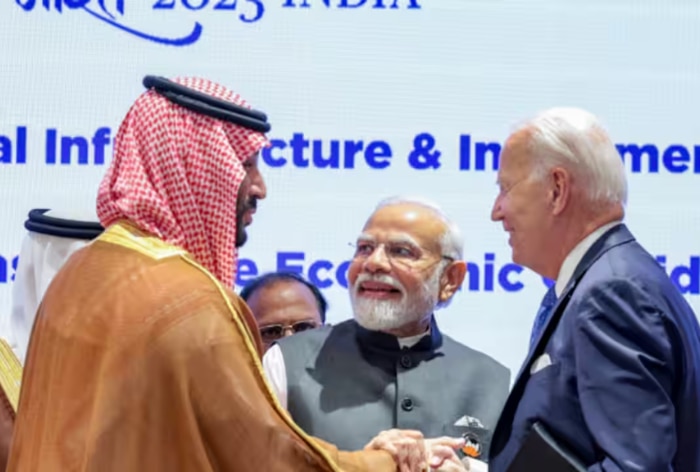In his monthly Mann ki Baat broadcast, Modi recalled the “Silk route”, an ancient trade corridor used by India when it was a prosperous and great trading power, and said the country made the suggestion of the India-Middle East-Europe economic corridor at the recent G20 Summit.

New Delhi: Prime Minister Narendra Modi has envisioned a new India-Middle East-Europe corridor that he believes will become a basis of world trade for the coming centuries. Modi announced the corridor at the recent G20 Summit, and he has said that it is a bold and ambitious project that will transform global trade. The corridor will connect India with the Middle East and Europe through a network of railways, roads, and ports.
PM Modi’s Vision For A 21st Century Silk Route
PM Modi’s vision for the corridor is to create a new Silk Road for the 21st century. He believes that the corridor will boost economic growth and development in all of the participating countries. It will also create new jobs and opportunities, and it will help to promote peace and understanding between different cultures.
In his monthly Mann ki Baat broadcast, Modi recalled the “Silk route”, an ancient trade corridor used by India when it was a prosperous and great trading power, and said the country made the suggestion of the India-Middle East-Europe economic corridor at the recent G20 Summit.
“This corridor is going to become the basis of world trade for hundreds of years to come, and history will always remember that this corridor was initiated on Indian soil,” he said.
What Is India-Middle East-Europe Corridor
The India-Middle East-Europe corridor is a major leadership initiative by Prime Minister Modi. It is a sign of India’s growing economic and geopolitical clout. It is also a sign of Modi’s commitment to working with other countries to build a better future for the world.
The India-Middle East-Europe Economic Corridor (IMEC) project is a major infrastructure initiative that was signed at the G20 Summit in New Delhi. It is part of the Partnership for Global Infrastructure and Investment (PGII), which is a values-driven, high-impact, and transparent partnership to meet the enormous infrastructure needs of low and middle-income countries.
India-Middle East-Europe Economic Corridor: Project Details
The IMEC project will consist of two corridors:
- The East Corridor: This corridor will connect India to the Arabian Gulf by rail, ship-to-rail networks, and road transport routes.
- The Northern Corridor: This corridor will connect the Arabian Gulf to Europe by rail, ship-to-rail networks, and road transport routes.
The IMEC corridor will also include an electricity cable, a hydrogen pipeline, and a high-speed data cable.
Geopolitical And Economic Implications For India
The IMEC project has significant geopolitical and economic implications for India. It will help to strengthen India’s ties with the Middle East and Europe. It will also help to boost India’s economy by increasing trade and investment.
(With inputs from agencies)

